Edinburgh International Book Festival to cut jobs, scale back programme and drop live-streaming
Redundancy talks started with the 32 full-time staff this week as part of efforts to reduce spending by around 25 per cent and safeguard the festival’s future after a “brutal” drop in income from ticket and book sales this year.
Cost-cutting is underway across all areas of the festival’s operations ahead of its 40th anniversary season in August next year after it saw a 40 per cent drop in income compared to the last full-scale festival in 2019.
Advertisement
Hide AdAdvertisement
Hide AdThe cutbacks are expected to significantly reduce the 150-strong workforce that was in place for this year’s festival, with around 100 fewer events expected to be staged in 2023.
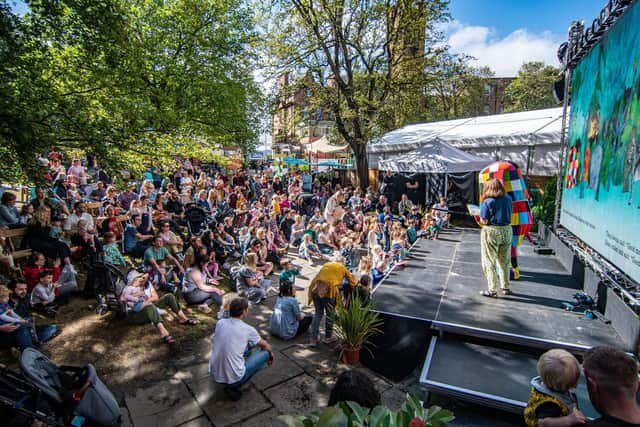

This year’s biggest venue, the 750-capacity Central Hall in Tollcross, will be dropped from the event, which will be staged entirely at Edinburgh College of Art, where the festival relocated to from Charlotte Square Garden in 2021.
The festival says it cannot afford to live stream events in the near future because of the “significant losses” it incurred filming and broadcasting them this year. However, it is still planning to press ahead with a move to a permanent new home at the former Edinburgh Royal Infirmary building in 2024.
Continuing hesitancy over Covid, changed habits since the start of the pandemic and a tightening of household budgets in the face of rising bills have all been cited by the festival.
Director Nick Barley said a “cocktail of factors” had led to regular festival goers buying fewer tickets and spending less on-site than previously. Mr Barley told The Scotsman: “The figures for ticket and book sales were pretty brutal this year. They were well below what we had hoped for and what we had pre-pandemic.
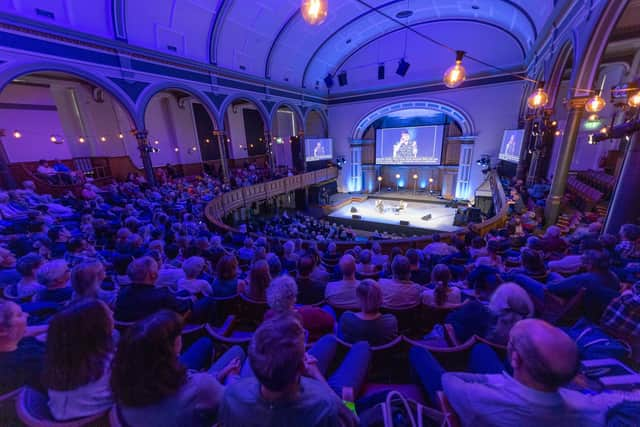

"It was a very difficult situation, as we had not only had the pandemic, but also a move from a site which was beloved to a new site which we had to prepare audiences for.
"Our programme this year was two thirds of the size of 2019 as we’d predicted lower demand. Our ticket sales forecasts were lower than what we'd always achieved at Charlotte Square, in terms of the percentage of seats sold for each event. But the figures were well below what we'd predicted.
Advertisement
Hide AdAdvertisement
Hide Ad"The number of people booking tickets was only 9 per cent down. But the number of tickets they bought was 33 per cent down.
“As a number of tickets were to watch online, for which the average income was lower, the amount of money we earned was 40 per cent down. That’s the new benchmark for us.
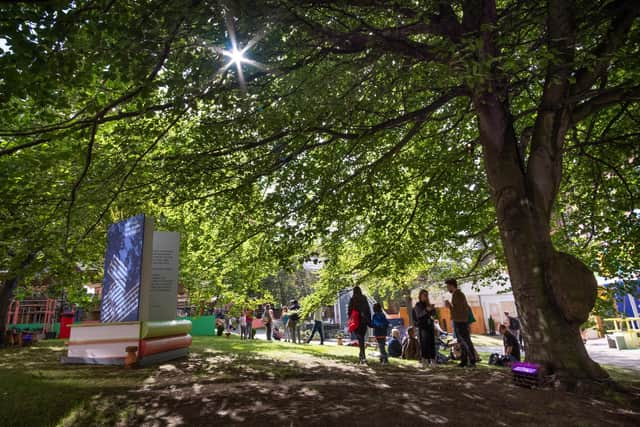

“There’s a cocktail of factors for why people are attending fewer events. The most obvious thing is that audience behaviour and habits have changed since the pandemic. Even if people think they’re going out as much as they did, the statistics show they’re not.
“It goes without saying that announcements about energy bills and uncertainty over the cost of living were undoubtedly a factor.“
The book festival had already cut back its programme from the pre-pandemic years, from up to 900 events in recent years to 600 this summer.
Mr Barley said: “We’re currently looking at all our budget lines with the aim of reducing our costs by roughly 25 per cent. With great regret, we’ve entered into consultations with our team in order to reduce our staffing budget. We’ll be preserving the majority of jobs. I don’t know how many jobs we will have to lose yet, but every single one will be painful.
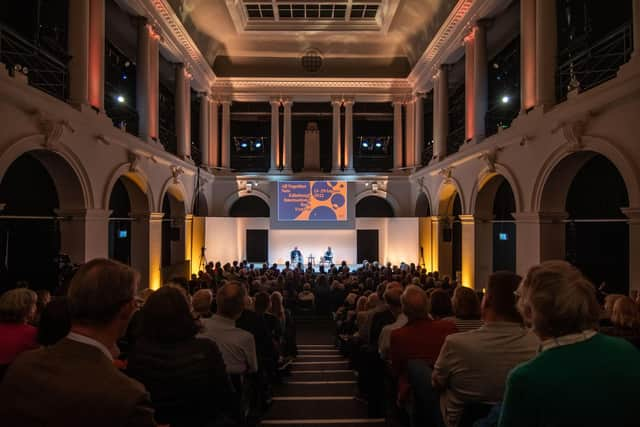

“We’re trying to avoid bigger problems in the future, to preserve the festival as the leading festival it is. It will allow us to deliver a festival with 500 events, with a full children’s and schools programme, but without live streaming and on a smaller budget.”
Advertisement
Hide AdAdvertisement
Hide AdMr Barley said all the indications were the impact on his audiences was likely to continue into 2023 and beyond. He said: “We have to take a brave position on this. Things are not going to get better any time soon. We’re setting a prudent budget based on pessimistic forecasts for ticket and book sales.
“We’ve spent the last three years trying our best to preserve the jobs in our organisation. That’s still my position.
“But now, more than ever, I can see that audience behaviour is not showing any signs of changing. Until that happens, I have no justification for preserving our budgets at the level they were.
"I said a couple of years ago that I thought it would take five to ten years to recover from the pandemic. The last thing I’m doing is blaming the audience. I’m blaming the pandemic.”
The book festival’s cuts have emerged weeks after the arts charity behind the Edinburgh International Film Festival and Filmhouse cinemas in Edinburgh and Aberdeen went into administration, with the immediate loss of 107 jobs following its 75th-anniversary season.
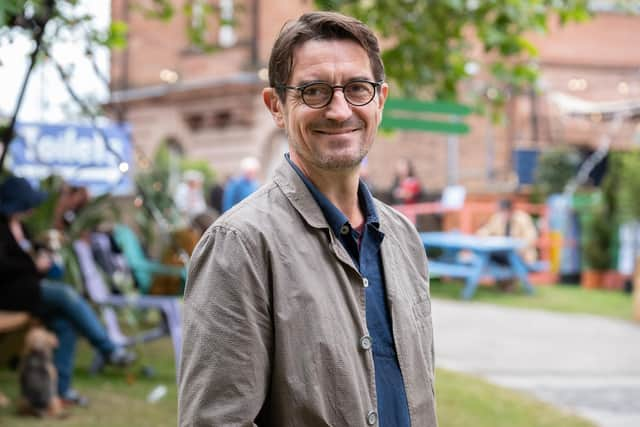

Mr Barley said: “I’m doing this for the sake of preserving one of the jewels in Edinburgh’s crown. I hope it’s a better way of going about it than the alternative – to cross our fingers and hope, and face greater problems down the line.
“We’re taking difficult decisions now before we fall into the same traps that other arts organisations might and to make sure that we’re resilient.
Advertisement
Hide AdAdvertisement
Hide Ad“We’ve prided ourselves on good financial management and good cost control over the years. We’re taking action to protect our reserves, which have been very strong every year. That pot of money is there to protect us against problems we might have in future. Festivals trade for a very short period of time in a 365-day year. If things go wrong, it’s very difficult to put them right. It’s something other festivals have struggled to do.”
Comments
Want to join the conversation? Please or to comment on this article.